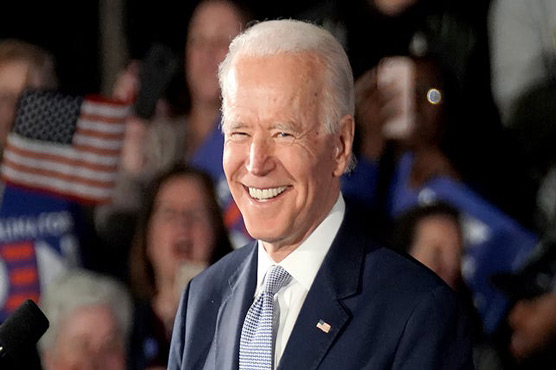Big Tech welcomes Biden presidency, but battles loom

Biden has signaled he would overturn Trump's orders limiting visas for skilled workers.
WASHINGTON (AFP) - Silicon Valley is welcoming the election of Joe Biden as US president even as it girds for a series of battles over tech policy in Washington.
The transition comes amid a growing "techlash" as lawmakers and policymakers struggle over antitrust enforcement, social media regulation, immigration and other contentious issues.
"Tech companies are happy with the outcome but there is some trepidation as well," said Bob O’Donnell, analyst at Technalysis Research.
O’Donnell said scrutiny of tech giants will likely continue or even intensify in Washington regardless of which party is in power.
Darrell West of the Brookings Institution’s Center for Technology Innovation said "both Republicans and Democrats have complaints about how the sector is operating and there is going to be more oversight and regulation."
Nonetheless, praise poured in for Biden after his victory from key tech leaders including Amazon founder Jeff Bezos, Microsoft president Brad Smith and Facebook’s number two Sheryl Sandberg.
Many progressives have pushed for an aggressive stand over concerns that Silicon Valley firms have grown too powerful, leading to greater economic inequality.
At the same time, the Biden campaign has cultivated ties with current and former tech personalities; and Vice President-elect Kamala Harris has ties to the sector, including her friend Sandberg of Facebook and her brother-in-law Tony West, Uber’s chief legal officer.
Here are tech issues likely to confront the Biden administration:
- Antitrust -
Potentially the biggest threat to the sector is on antitrust -- specifically the idea voiced by some Democrats of breaking up the largest technology firms.
"Companies like Apple, Google and Facebook are going to have a rougher time," said Patrick Moorhead of Moor Insights & Strategy.
While it would take a lengthy effort to break up major firms, the administration could take aim at Google’s control of digital advertising with a view to make that market more competitive, Moorhead said, or target Apple’s 30 percent commission for its online App Store.
Robert Atkinson, president of the Information Technology and Innovation Foundation, said he expects "enormous pressure" in this area because "the left wing of the Democratic Party has made antitrust a central pillar of their agenda," but that breakups are unlikely unless Congress revises pertinent laws.
- Internet regulation -
The transition comes amid intense debate in Washington over internet regulations including social media liability and online privacy.
Most contentious appears to be the so-called Section 230 law which protects online services from liability from content posted by others. This has been a target from both the left and right, even as digital rights activists warn it is the cornerstone of online free speech.
Biden has said Section 230 should be "revoked" but has offered no details of any plan to reform the law.
Atkinson said Biden’s comments are "more campaign talk than anything else" and does not expect an aggressive push to repeal the law given its critical importance to the internet.
Biden is widely expected to reverse the Trump administration’s course by supporting net neutrality, which would require internet providers to allow access to all services without discrimination or unfair fees.
His administration will also confront choices on online privacy and law enforcement’s access to encrypted content, major points of contention between Washington and Silicon Valley.
Biden aides have signaled support for "European-style privacy legislation" to govern how tech firms use personal data, but will likely face challenges with a Republican Senate majority, according to Atkinson.
- Immigration -
Biden has signaled he would overturn Trump’s orders limiting visas for skilled workers sought by technology firms, a major win for Big Tech.
"Biden will be much better for high-skill immigration and that’s something tech companies like a lot," said Atkinson.
Moorhead said the tech sector will likely "find it easier to get skilled employees from overseas with fewer hurdles," but that Biden "has to be careful that he doesn’t frame it in a way that is anti-US jobs."
- Trade, China -
Biden is likely to reverse the Trump move on "decoupling" the US and Chinese economies, which will be a relief to the increasingly intertwined tech sectors of the two countries, said Atkinson.
He added that Biden’s team includes "foreign policy traditionalists," who will look at human rights and strategic interests along with economic factors, enabling companies like Apple to flourish with operations in both countries.
Others noted that Biden could be forced to make national security choices that could anger Beijing and impact companies like Huawei and TikTok, which have been targeted under Trump.
"My sense is that Biden is going to continue to be tough on China," O’Donnell said.
"Hopefully he can do it in a more productive way. We can’t ignore the fact that we are in a global economy and there is a lot of dependence between the two nations."

